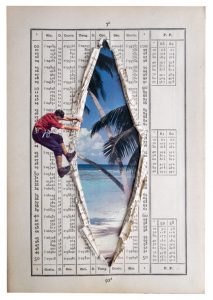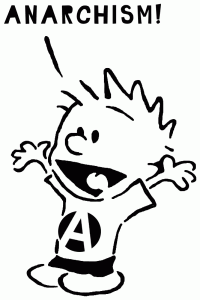technological advances in communication tools have been part of the impetus to rethink the divisive and hierarchical categorizing of literature and orality, and [i’ve] suggested that this is happening for a number of reasons. I’d like you to consider two aspects of digital literature: 1) social media tools that enable widespread publication, without publishers, and 2) hypertext, which is the name for the text that lies beyond the text you are reading, until you click. how do you think these capabilities might be impacting literature and story?
– question posed by erika paterson.

in her article on orality, courtney macneil suggests that the ways in which the technological advance of the worldwide web have obscured the differences between oral and literal communication have been a catalyst for re-envisioning the capabilities and limitations of both.
erika paterson in her lecture on story and literature explains how the capabilities of social media tools that enable widespread publication without the need for any middle man publisher and access to hypertext, “text that lies beyond the text being read”, have both played a part in expanding the communicator’s power while diminishing restrictions of how the information is being communicated. the result of this greater power for the communicator and wider realm of mediums has resulted in changes for how the modern world relates to and forms literature and story-telling.
published literature has been the authority on storytelling in the colonial western world for centuries. ever since the beginning of imperial civilziations, only text that was meticulously edited, printed, published and distributed was considered literary. frank kermode ascertains in his book “the classic” that classic literature is entirely dependent on imperial qualities – he pointed out that it was countries such as spain, britain, france, italy, russia and germany that had the most influential classic writers. this observation implies not only that it was imperial powers that had the most access to means of preserving documentation, but also that imperial powers only valued their own works, as conquerors, and that documentation by smaller or conquered nations were more prone to be lost, destroyed and/or not given credence. this also ties into how the oral traditions of many cultures have been dismissed as falling beneath literature on the hierarchy of reliable documentation.
the worldwide web has changed our cultural social groupings in that where once we were dependent upon family and social groups who lived in close proximity to us for the communication of information, or various levels of governments and organizations that controlled the media being broadcast or mailed to our homes, we are suddenly part of a global community that has instantaneous access with each other. social media allows the voice of a single person to be heard internationally.
furthermore, as the worldwide web is more available to the public then esteemed publishing opportunities, the power dynamics that social, cultural or monetary capital typically offer for platforms of expression are less overpowering. although having access to a computer and a public following will require some amount of funds, social connection and/or privilege, the computer itself does not distinguish between positions of privilege. anyone who can get access to a computer can type their opinion or story and post it for all to see. not only are people attempting to access wider audiences, but they are actually getting a wider audience because suddenly, through social media, we find millions of people scanning the internet on a daily basis to hear and listen and see other peoples stories.

on one level, we lose the power of being in the presence of a live singer-songwriter, or listening to a poet perform a reading. however what we lose through internet in physical presence of the storyteller, we make up for in the accessibility of stories – in a single week we could listen, read and watch the stories of hundreds of different people all across the globe from the comfort of our own homes or internet cafes.
i would argue that those dedicated to presenting stories with different views within political subcultures and counter cultural circles of our world have always found a way to make it happen. elke zobl reminds us that as early as the first printing presses were running, self-published literature was being created, such as martin luther’s controversial “ninety-five theses”.
yet internet platforms still offer an unprecedented access to varying information and points of views of different peoples from all over the world, one in which poor and wealthy, young and old, black and white all have access to listen and tell stories. we are no longer as subject to our location in the world and to the published written works of the most affluent people of the strongest nation states for the access to and the sharing of stories. but with the influx of information available, what are the stories that are actually being heard through the worldwide web?
works cited
Borrows, John. “Listening for Change: The Courts and Oral Tradition”. Centre For First Nations Governance. n.d. fngovernance.org/ncfng_research/oralhistory.pdf. Accessed 18 Sept. 2016.
Kermode, Frank. The Classic: Literary Images of Permanence and Change. Boston: Harvard University P, 1983. Print.
Macneil, Courtney. “Orality”. The Chicago School of Media Theory. (2007): n. page. lucian.uchicago.edu/blogs/mediatheory/keywords/orality/. Accessed 18 Sept 2016.
Paterson, Erika. “Lesson 1.2 – Story and Literature”. ENGL 4710 Canadian Literary Genres: Canadian Studies. University of British Columbia. Nov. 2013. blogs.ubc.ca/courseblogsis_ubc_engl_470a_99c_2014wc_44216-sis_ubc_engl_470a_99c_2014wc_44216_2517104_1/unit-1/lesson-12/. Accessed 18 Sept. 2016.
Soyer, Erwan. “Tahiti”. 2011. Erwan Soyer. erwan-soyer.tumblr.com. Accessed 18 Sept 2016.
Zobl, Elke. “Zines: zine history, the n\zine network, topics, and teaching zines in classrooms”. grrrl zines. 2004. www.grrrlzines.net/overview.htm. Accessed 18 Sept 2016.
 Follow
Follow
I love the idea that internet offers completely unbiased platforms that provide us access to the perspectives and viewpoints of a variety of peoples, as you said “poor and wealthy, young and old, black and white.” This is truly one of the greatest achievements that social media and other internet platforms have accomplished.
To look at some of the down sides of the internet, in addition to the physical loss of experiencing a story (song, poem etc.), I feel that the internet has also brought a sort of information overload. And this excess information has had a negative impact on peoples’ concentration, as well as their ability to communication and participate in an engaged and lasting way. As it is “memed” so often something is only important until the next cute cat video comes out.
I feel that an imperative feature of publishing anything online is trying to “grab” your viewer’s attention and convey your information in the quickest way possible, before they move on to something “better.” I am interested in your opinions on how access to hundreds of stories has, or hasn’t, impacted the attention span of people? Do people have less tolerance for longer stories now that there is so much more they could be reading/viewing. Do you think that this impatience for longer stories means that people will engage less with the stories they read?
I was also thinking about what you wrote about “those dedicated to presenting stories with different views within political subcultures and counter cultural circles” … Do you think that the volume of information available on the internet could actually serve to dilute or encumber access to these different views?
hi hannah! thanks for your comment!
i agree. the overload of information being expressed through the internet does affect the way we process, communicate and literate.
i commented on someone else’s blog about how web based communication cultivates a style of writing that i referred to as “popcorn lit” – stories that are momentarily impactful but end up being only a very small and quick look at the multi-faceted human condition and interrelation. a meme may grab our attention, but we cannot find a new, life-altering extended metaphor in it like we could in a longer piece of literature.
i think it is really all about how one uses the internet and social media. perhaps one person uses popcorn photo posts throughout their week to successfully engage their friends in their start-up business. and perhaps someone else uses youtube to watch every documentary, biography and interview they can find on george orwell. the information accessible from the web is endless. and it is up to us as to how we use it. there is definitely a popcorn culture being perpetuated through instantaneous communication, however there is also a culture of free thought and information readily available for us.
i think i would definitely be concerned if i had children about the modern ability to engage in longer pieces of literature!
i’m not sure if larger masses of information dilute our access to alternative and counter-culture views. i think that the information is out there and i think if people want to find it they will. but as always, popular and business/government endorsed media will be what most are familiar with, and finding alternative views will take a bit more work to discover or understand for those who are not familiar with alternative language and viewpoints.
i’m curious to hear your thoughts on it though too!
best,
stephanie
I am very intrigued by this blog post and commentary as I agree it is very true that the relatively new platform of the internet has allowed for changes in not only the style of writing but I do in fact believe that it has impacted the way in which future generations interact with written works.
When you said “I feel that an imperative feature of publishing anything online is trying to “grab” your viewer’s attention and convey your information in the quickest way possible, before they move on to something “better.”” I immediately thought of not only my own children but also the young people I work with in the school system and although it may not be empirical research I have observed day to day that more often than not if they are not intrigued immediately or given some form of instant gratification they quickly move on. It will be interesting to observe as time moves forward what my children’s attention spans will be like as they are only 6 now and just beginning to delve into reading and literature.
Do you think the influx of information beyond the borders of technological constraints that we once were limited by will lead to greater knowledge for the average individual or do you think we are inundated by too much too fast and are therefore not retaining and appreciating as much as we should ?
Technological advances have definitely affected the way in which one can share their story, giving opportunities to share to those who previously would not have had the chance. But, are we as readers actually giving the time to fully “listen” and “hear” the stories that are being told or are we as a society just skimming and not paying close attention?
great questions audrey, thanks for commenting. i think i am in the process of asking myself these questions you asked. how has skimming and popcorn reading affected the way we function and relate to others? are we really listening to what’s being said or are we obsesses with these ideas of sharing our opinions? is my moral responsibility as a white person to stop sharing so much about my experience so that others experiences are heard over the internet? or is my responsibility as a female with disability to use my voice and demand respect for the people who share that status.
will my nieces and nephews be able to appreciate the depth and development of the human situation through literature? and does it matter if they don’t? will they be able to grasp better then myself the conflicting issues of being human and sharing this world with others than any generation before?